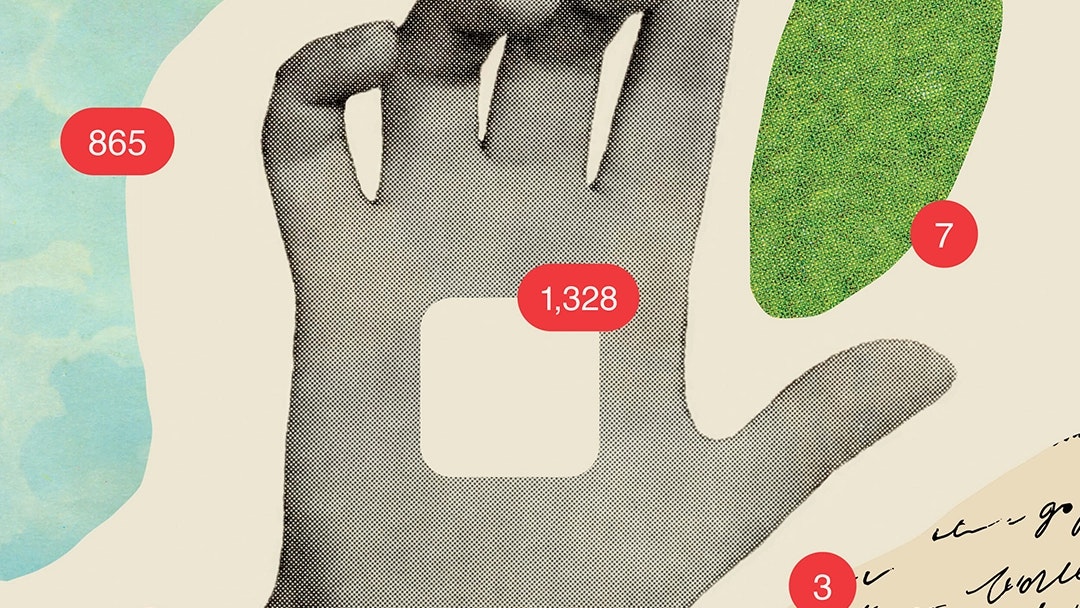The Future of Credit Scores
Listen on Apple Podcasts, Spotify, or your favorite podcast app.
This week’s Future of Fintech is on the future of credit scores, discussing whether fintech can disrupt credit agencies, credit scores for future generations, opportunities for innovation, and more.
Future of Fintech is hosted by Immad Akhund, founder and CEO of Mercury, and Sheel Mohnot, Partner at Better Tomorrow Ventures.
Guests for this week include:
- Ohad Samet, Cofounder & CEO of TrueAccord
- Maia Bittner, Head of Business Operations at Chime
- Matt Harris, Cofounder & CEO of Bloom Credit
- Kristy Kim, Cofounder & CEO of Tomo Credit
- Misha Esipov, Co-Founder & CEO of Nova Credit
Highlights from Future of Fintech: Credit Scores
This interview has been lightly edited for length and clarity.
Why are credit scores so bad and why can't they be fixed?
MISHA (Nova Credit): Part of it is a data problem. Standardizing the borrowing behavior of over 300 million Americans into one central database is hard. We could throw stones at how and why the credit reporting industry has problems, but it is a critical part of what makes consumer finance viable.
KRISTY (Tomo Credit): Credit bureaus started at grocery stores. Imagine, 80 years ago, you walked into a grocery store, didn't have your paycheck yet, and wanted to get a bottle of beer. You would borrow from the grocery store owner – he or she will write down what you bought and how much you borrowed. You would go back later to pay back. Credit score was a history of your borrowing and repayment history. Younger customers, like Gen Z and millennials, don't have a huge borrowing history.
MAIA (Chime): It's similar to interviewing. Shop owners would extend credit to people in their communities. Even today, tech people haven't automated hiring. It'd be a crazy thing to suggest because we know that it is valuable to talk to and meet someone.
Credit scores are screwed up and they unfairly keep many people out of the traditional financial sector. But it's a ridiculously hard problem to automate.
What is stopping credit agencies from looking at the money in my bank account? That seems like it should have a big effect on my credit score.
KRISTY (Tomo Credit): Mortgage is already doing that. They try to understand how much money you make and have. They are trying to understand your holistic financial situation.
When you look at credit cards, the industry hasn't changed. FICO is outdated. However, they are not incentivized to make changes. These big companies would rather focus on making money on the existing customer base.
MATT (Bloom Credit): Why don't the bureaus track cash flow? One, it's not the product they offer. Two, it’s difficult to validate what is in someone’s bank account versus any outstanding cash. You could do that through Plaid, but does Plaid capture every account that someone has?
Why has the credit score stuck around?
MATT (Bloom Credit): Banks aren't stupid. They're slow. Part of the reason why FICO still exists is because it's still the best thing in the market.
OHAD (TrueAccord): People use credit scores because they work. Debt to income ratio is very indicative. Alternative data sources or scores haven't been a replacement. The scores work for the mainstream.
KRISTY (Tomo Credit): 76% of college students don't have a credit score. Consumers have changed their behaviors. The market needs to transform. When lenders adopt new changes, the pressure will go to FICO. Then credit bureaus will move. That's how I see the industry transforming.
MAIA (Chime): Credit scores work for most people. Here’s a metaphor. Lenders are handing out tequila shots. If they're evaluating people to hand a shot to, they're more likely going to go with a guy who has a couple beers every night than somebody who's never drank at all. The guy who has a couple of beers every night is more likely to withstand the tequila shot, even though the person who never drinks is healthier.
There are interesting segments of people that the credit score isn't accurate for. There are immigrants in the U.S. who have six-figure tech jobs: a classic segment that is great to lend to, but don’t have credit scores to reflect that. Technology has an opportunity to reduce barriers to evaluating people, so that we're able to, segment by segment, come up with better solutions. We have to make it worth lenders' time to figure out if somebody is worth lending to based on something other than credit score.
MATT (Bloom Credit): We're talking about credit score, but credit score is a proxy for the underwriting model. We're attempting to understand ability and willingness. Ability is what we use FICO and DTI and cash flow data for.
How do you hack around willingness? The most famous example is Oportun. They look at payday bureaus. But another thing they look at is whether or not that person walked into a branch. Someone who's willing to drive 20 minutes to go walk into a branch is significantly more likely to repay a loan – you're willing to take some steps to go pay that off. Oportun is a lender that lends to people who are thin to no file.
Keep up with the industry’s sharpest minds, right from your inbox.
Is there something stopping startups from making a fully verticalized credit scoring system?
MISHA (Nova Credit): Let’s say you come to the U.S. and need to get a credit card, auto loan, or student loan. All those application processes involve checking the U.S. bureaus. The U.S. bureaus will say, "we've never seen this person before." Your typical application journey ends right there.
We've tried to solve that problem by getting foreign credit bureau data and making it possible for that information to come into the US. People don't have to wait several years to build a representative file. They can use their home country bureau to get started.
When a consumer is most in need of credit, there's an incredible opportunity to give them the ability to build a more complete financial profile of themselves. With open banking and everything happening with consumer permission data, it is a matter of time.
One thing that came up earlier was the younger generation not having credit cards. Why is that?
KRISTY (Tomo Credit): It's not that Gen Z suddenly doesn’t want a credit card, it's more of the stigma around credit cards. Credit cards companies make money when you make a mistake. They make money on late payments. Because of that, younger people have been shying away from credit products. They are also fearful that to apply for a credit card, you have to have a credit score. Your credit score will get pooled and potentially damage your score.
At Tomo, we decided not to pull credit scores at all. The worst case scenario when they apply for Tomo Credit is not getting approved, but there's no damage to their score itself. A thin or non existing credit profile is not a niche market anymore. More than 4 million new credit invisibles are coming into the market every single year. More than 76% of Gen Z don't have credit.
MISHA (Nova Credit): People got credit cards in college because credit card companies had effective giveaways. College kids were basically on bait and switched credit cards. The 2009 Card Act legislated against that. Credit card companies are no longer able to market on campus.
The government did not want consumers to get credit cards that early, because they were not using them responsibly and getting into tons of credit card debt.
MATT (Bloom Credit): The Card Act did what it was supposed to do: stop consumers from getting into gross amounts of debt before graduating from college. But it also had unintended consequences, which is that now consumers come out of college and don't have built up credit scores, unless their parents were smart and got them as an authorized user. Before the age of 22, there are not a lot of effective channels through which people can get credit cards.
Are credit building programs sustainable? Are they just ways of hacking the system?
KRISTY (Tomo Credit): The credit bureau is not a source of truth to begin with and they are slow. They are trying to use new data attributes, but because they are dealing with the entire US population and their data, they cannot move in a nimble fashion.
That creates space for startups, because for us, whichever credit hacks we are building, it's going to work for the next five years minimum. FICO is not going to prevent the hacks from working. In the credit bureau’s perspective, it's in their favor to support startups like Chime or Tomo Credit because we are bringing Gen Z into their system. When someone opens a Tomo or Chime credit card and makes a repayment, we report that repayment history to Equifax, Experian, TransUnion.
MATT (Bloom Credit): Credit building programs are awesome. For a lot of communities, it's difficult to get access to FDIC-insured lenders as well as lenders that report. Part of the problem with credit bureaus is that reporting is not mandated. In a lot of instances, especially in lower income communities where there's less access to FDIC-insured lenders, people who do report, report incorrectly. Even though they're able to get a loan, it ends up hurting them because an error was made, and they can't get the error fixed because the systems flooded.
Being able to layer in multiple angles to help people get access is helpful. Credit builder loans are undoubtedly a good step.
Everyone is worried that credit companies have a big honeypot of interesting data. Is there a better way to do this? Or, is this the best we can do?
MISHA (Nova Credit): There’s no golden bullet on how to make impenetrable information security processes. There've been several attempts, like decentralized blockchain-based bureaus that can protect everybody's information. Those have their own sets of challenges: how do you see the data? How do you get the system to adopt? These solutions are decades away; I don't think the bureaus are going away.
There are countries around the world, like the Philippines, which have their own set of challenges in credit reporting, where furnishing is mandated by the government. In order to lend, you must also furnish into a central government repository that then allows for private sector bureaus and analytics companies to build on top of. So there are other frameworks out there.
Are you saying furnishing is good or bad?
MISHA (Nova Credit): Furnishings are incredibly important. Every lender should furnish into all the bureaus. If the government could take a stance in mandating that, that would create a lot of good.
MATT (Bloom Credit): If all we did was mandated furnishing, you'd be surprised how many knock-on effect issues within the bureaus and our credit system would get fixed.
KRISTY (Tomo Credit): In the long term, we are all partners in this transformation. Customers have real pain points that can’t wait for three to five years until all the data get furnished. For now, startups will come up with solutions to help customers. Then we can partner with credit bureaus and help consumers, startups, and credit bureaus win.
Want to hear more? Tune in to the podcast episode where we cover lots more. You can also subscribe to Future of Fintech on Apple Podcasts, Spotify, or your favorite podcast app.
Related reads

The analog foil to digital enshittification

Strategies for managing your investment portfolio as a founder — beyond your startup equity

The 3 signs of founder burnout: Building a company without sacrificing your mental health
